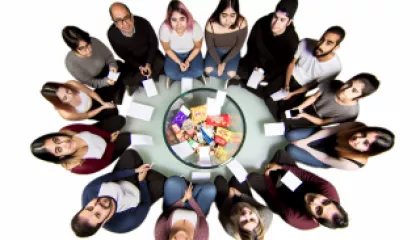Unraveling the Science Behind Breaking Bad Habits
11 months ago
Breaking Bad Habits
Have you ever wondered why it's so hard to break bad habits? From excessive snacking to procrastination, these patterns of behavior can become deeply ingrained in our lives and be a real challenge to overcome. But what if science could provide us with the tools to dismantle these undesired habits effectively? Let's dive into the research findings on this compelling topic.The Nature of HabitsBefore we delve into breaking bad habits, it's crucial to understand why they form in the first place. According to scientific studies, habits are essentially automatic responses developed through repetitive actions. The brain creates a neural pathway for these actions, which becomes stronger the more the action is repeated. Consequently, the action eventually becomes automatic, requiring less conscious thought â hence forming a habit.The Role of the Brain's Reward SystemOur brains have a reward system that plays a significant role in habit formation. This system relies on dopamine, a neurotransmitter associated with pleasure. When we perform an activity that makes us feel good (like eating a delicious snack), our brain releases dopamine. This release creates a feeling of satisfaction, making us want to repeat the activity.However, not all habits are beneficial. The brain's reward system doesn't distinguish between good and bad habits â it simply responds to the dopamine release. This is why we can easily develop harmful habits like smoking, unhealthy eating, or excessive drinking.Why Breaking Bad Habits Is HardAs we've seen, habits are deeply rooted in our brain's function, making them challenging to break. In addition, our environment often triggers our habits. For instance, if you have a habit of smoking after meals, merely finishing a meal can trigger a craving for a cigarette. Plus, the immediate gratification provided by the habit (the dopamine release) often outweighs the long-term consequences in our decision-making process.Research on Habit Breaking StrategiesDespite the challenges, research has identified several effective strategies for breaking bad habits. These strategies revolve around understanding and manipulating the habit loop â a cycle of cue, routine, and reward that governs how habits work.1. Awareness TrainingA study by researchers at the University College London found that increasing one's awareness of the habit loop can help break bad habits. This process involves identifying the cue, routine, and reward associated with the habit and being mindful of when the cycle occurs.2. Replacement BehaviorsAnother strategy recommended by scientists is to replace the undesired habit with a healthier behavior. For instance, if you have a habit of eating junk food when you're stressed, you might replace that habit with going for a walk or practicing mindfulness exercises.3. Gradual ChangeBreaking a habit doesn't necessarily mean stopping abruptly. Research shows that gradual change can be effective, especially for ingrained habits. This could mean reducing the frequency of the behavior before eliminating it entirely.4. Social SupportSocial support can also play a key role in breaking bad habits. A study published in the "American Journal of Public Health" found that individuals trying to quit smoking were more successful when they had social support, such as friends or family who were also trying to quit.The Power of Self-BeliefWhile these strategies can be effective, they require commitment and self-belief. Research indicates that one of the key factors in successfully breaking a bad habit is the individual's belief in their ability to change. This belief, known as self-efficacy, can significantly influence the success rate of habit change.ConclusionBreaking bad habits is a complex process that involves understanding our brain's workings and the factors that contribute to habit formation and persistence. However, with awareness, replacement behaviors, gradual change, social support, and self-belief, we can effectively dismantle these undesired patterns. The scientific insight into this process not only provides us with practical strategies for change but also helps us understand ourselves better, viewing our habits as part of our brain's function rather than personal failings.

